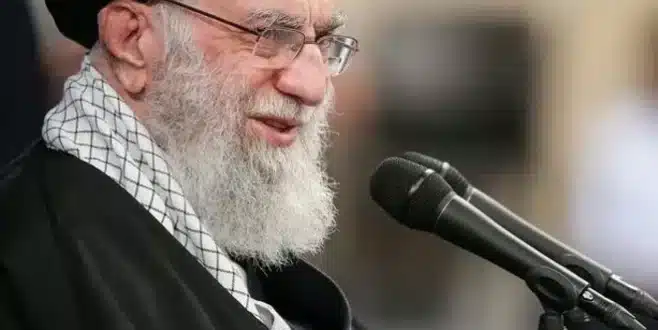A senior official from Iran’s Revolutionary Guards issued a warning on Thursday, threatening to target Israel’s nuclear facilities if Israel were to attack Iranian atomic sites. This statement comes in anticipation of possible retaliation for Tehran’s aggressive drone and missile strike over the weekend.
Iran launched this attack, which was mostly intercepted, in response to an April 1 airstrike on the Iranian consulate in Damascus that resulted in the deaths of seven members of the Islamic Revolutionary Guard Corps, including two generals. Despite global calls for restraint, Israel’s military has indicated it will respond, though specifics regarding the time and place of such retaliation remain undisclosed.
Ahmad Haghtalab, who oversees nuclear protection and security for the Guards, stated clearly that any attack on Iran’s nuclear facilities by Israel would be met with a forceful response targeting Israeli nuclear sites with advanced weapons.
This warning was reinforced by Prime Minister Benjamin Netanyahu’s statement that Israel maintains the right to defend itself. Haghtalab added that the threat of an Israeli strike could cause Iran to reconsider its stated nuclear policies.
Iran insists its nuclear program is solely for peaceful purposes and has repeatedly denied aspirations to develop nuclear weapons. However, it has accused Israel of previous sabotage efforts against its nuclear facilities and the assassination of its nuclear scientists.
Haghtalab emphasized that Iran has detailed knowledge of Israeli nuclear centers and is prepared to launch powerful missiles to completely destroy these targets if necessary.
On a related note, the International Atomic Energy Agency’s head, Rafael Grossi, mentioned that Iran had temporarily shut down its nuclear facilities for security reasons on the day of its attack on Israel. Amirali Hajizadeh, commander of the Revolutionary Guards’ aerospace unit that conducted the strike, remarked that the attack utilized older weapons and was minimal in its execution, suggesting that more significant military capabilities were held in reserve.


